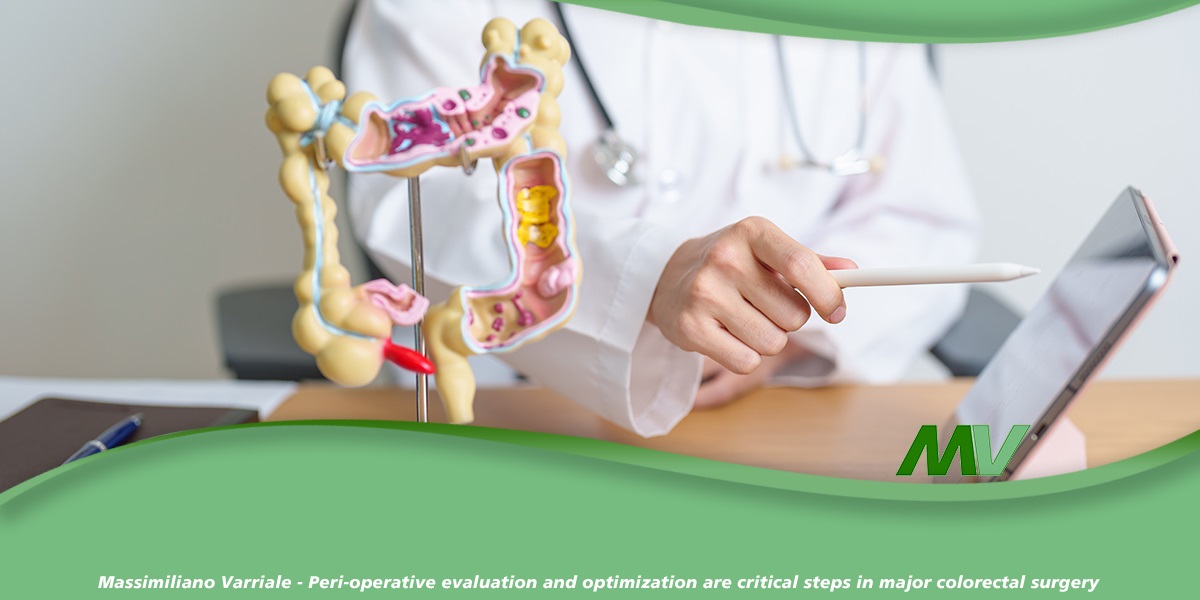15 luglio, 2024
Peri-operative evaluation and optimization are critical steps in major colorectal surgery: important practical considerations in the management of these patients
The health care professional, prior to an intervention, makes a thorough assessment and applies interventions to optimize the patient's journey.
A comprehensive preoperative evaluation involves:
- Medical and physical history: identify preexisting conditions that could affect the outcome of the intervention, such as cardiovascular disease, diabetes, obesity, and tobacco use.
- Laboratory and diagnostic tests: routine blood tests, renal and liver function assessments, and, if necessary, cardiopulmonary tests to assess the patient's ability to withstand anesthesia and surgery.
- Consultations: involve specialists such as cardiologists, pulmonologists, or endocrinologists for patients with significant comorbidities.
- Nutritional assessment: identify patients who are malnourished or at risk of malnutrition, as malnutrition may increase the risk of postoperative complications.
- Nutritional interventions: in malnourished patients, consider preoperative nutritional supplementation to improve protein and calorie reserves.
- Optimization of medical conditions: make sure conditions such as hypertension, diabetes, and chronic lung disease are well controlled before surgery.
- Medication management: review and adjust preoperative medications, especially anticoagulants, antiplatelet and diabetes medications, in consultation with treating physicians.
- Infectious Risk Reduction Planning.
- Antibiotic prophylaxis: administer appropriate prophylactic antibiotics before incision to reduce the risk of surgical site infection.
- Bowel preparation: evaluate the use of mechanical and antibiotic bowel preparation according to the latest indications and center practice.
- Pain Management and Anesthesia Techniques: implement multimodal pain management strategies that may include nerve blocks, non-opioid medications, and loco-regional anesthesia techniques to reduce the use of opioids and promote faster recovery.
- Fluid therapy: use a restrictive approach to fluid management to avoid fluid overload, which can adversely affect surgical outcomes.
- Enhancement of Physical Abilities
- Early mobilization: encourage early postoperative mobilization to prevent complications such as deep vein thrombosis, pneumonia, and muscle atrophy.
- Preoperative rehabilitation: consider programs to improve patients' physical fitness before surgery.
- Use of Enhanced Recovery After Surgery (ERAS) Protocols.
- Implementation of ERAS: Adopt ERAS protocols that include several of the elements described above to reduce surgical stress and promote faster and safer recovery.
Carefully planned perioperative evaluation and optimization are essential for the management of patients undergoing major colorectal surgery. Adopting a multidisciplinary approach and using evidence-based protocols, such as those of ERAS, can significantly improve outcomes and reduce the length of hospitalization.

